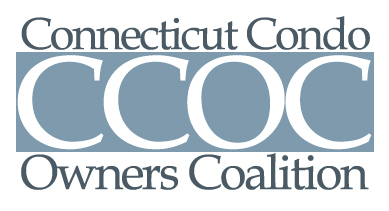Be Aware Of Cheapest Contractor
Everyone, including condominium associations and unit owners, want to save money. One way to save money is to hire the cheapest contractor. The cheapest contractor, unfortunately, can be unlicensed and/or uninsured. If the contractor causes property damage or someone is injured, the Association or unit owner could be liable. Even if the Association and unit owner are insured, there may be a deductible and too many claims increase insurance premiums.
The Board solicits contractors to perform Association maintenance responsibilities and sets minimum standards. The unit owner can hire its own contractors to work inside of the unit.
Under its maintenance standards, the Association can specify if unit owner contractors meet minimum standards. If the unit owner fails to meet the standards and damage results, the Association can assess its costs back against the unit owner.
Every contractor should have liability insurance to cover potential damages or injuries. The amount of coverage depends on the type of work, but the “gold standard” is a million dollar liability policy. The Association should insist that the Association is an additional insured on the contractor policy. Additional insured’s are those people who, despite not owning the policy, are protected if something goes wrong. The Association should also want notice of policy lapse or cancellation.
The minimum paperwork should be a certificate of insurance. A certificate of insurance is issued by the insurance broker or agent and, by law, must accurately reflect the terms of the policy. A certificate of insurance does not create insurance coverage nor confer status as an additional insured, but only states what coverage exists.
The contractor should prove workers’ compensation coverage. In Connecticut, any employer must have workers’ compensation coverage for an employee. Workers’ compensation protects workers if they are injured on the job with wage protection and medical benefits. In exchange, the worker is precluded from suing the employer for negligence. The contractor’s worker can still sue third parties, like the Association, but workers compensation payments will limit the damages.
The contractor should prove that it is appropriately licensed and trained for the work being done. For example, plumbers and electricians must have training and be registered. A contractor performing general work on structures or improvements must be registered as a Home Improvement Contractor. Complaints against the contractor can be filed with Connecticut Department of Consumer Protection. The Association can also collect up to $15,000 from the State’s Home Improvement Guaranty Fund if the Association is harmed by a registered home improvement contractor and cannot recover the damages in court.
The contractor should secure all necessary building permits. Only registered contractors can apply for building permits. Although there is a charge for the permit, the Town building department will require appropriate materials and inspect the quality of the work.
The sweetness of saving a few contracting dollars becomes a bitter taste if the Association or unit owner is exposed to thousands of dollars of liability.
Pat Ayars is a Glastonbury attorney who specializes in condo issues. She is a member of the Connecticut Condo Association Advisory Committee.

Related posts:
- CCOC Q&A – Meeting Notices (16.7)
- What To Do When Boards and Property Managers Abuse A Law Allowing Decisions By Consent Without A Meeting (11.7)
- Ask George: Can A Board President Prevent Individual Board Members From Meeting With Auditor? (10.9)
- HARASSMENT IN ASSOCIATIONS–BOARD MUST ACT (10.3)
- Do your Board Meeting Minutes Actually Mention ALL Controversial Issues? We Doubt It (8.7)
One Response to Rules For Board Members To Act Without Meeting
- William Donovan says: May 10, 2018 at 7:35 pm (Edit) 5/10/18 Gail: Thank you for researching and clarification. Reply
Leave a Reply
Logged in as George Gombossy. Log out?
Comment
- Latest From CCOC
Working together to inform, educate, support, and advocate
for the rights of condominium owners statewide. Once you become a CCOC member you can file a complaint-query request to gail-ccoc@cox.net. The opinions in this column are the opinions of the Executive Committee of the CCOC. All other columns are the opinions of the individual bloggers.
- Looking For Legislative Suggestions For 2017 General Assembly December 14, 2016 By George Gombossy As we prepare for the 2017 legislative session we would like to invite suggestions from our members. The CCOC executive Read More »
- CCOC Leadership May 1, 2015 By George Gombossy EXECUTIVE BOARD PRESIDENT Gail Egan Gail@ctcondonews.com George Gombossy George@ctcondonews.com Richard Maloney Lynn Jones Judy Doneiko, CPA ADVISORY BOARD Atty. George Read More »
- April 30, 2015 By George Gombossy IMPORTANT LINKS Chapter 828 Common Interest Ownership Act http://www.cga.ct.gov/2011/pub/chap828.htm Chapter 825 Condominium Act http://www.cga.ct.gov/current/pub/chap_825.htm FIND YOUR LEGISLATOR http://www.cga.ct.gov/asp/menu/cgafindleg.asp Department Of Read More »
- Recommended Site Links





Leave a Reply